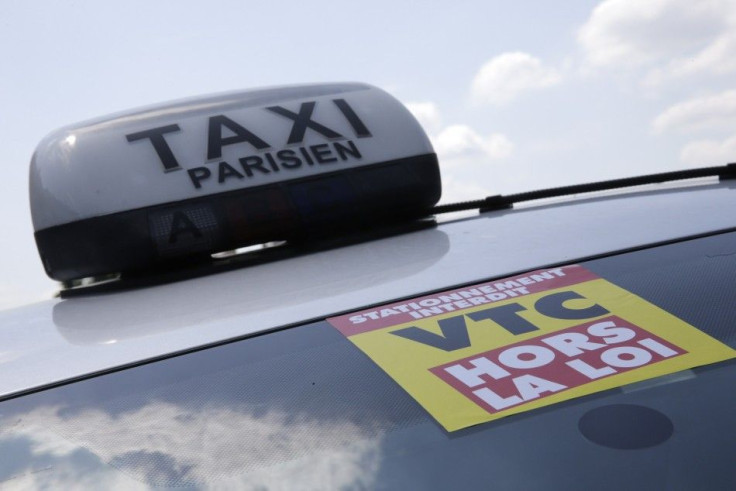Five Reasons Behind the Uber Taxi App Strike Across Europe

The advent of San Francisco-based Uber taxi app in European Union (EU) countries sparked a massive strike across various cities such as London, Berlin, Paris, France, Barcelona and Madrid. Traditional taxi drivers mounted large-scale strikes across the various cities thus commuters are beset with chaotic days of heavy traffic.
Here are five reasons why traditional taxi drivers staged various strikes across EU-member cities.
Infringement of Local Taxi Rules
According to an article from CBC, taxi drivers claimed that Uber taxi app infringed on local taxi rules that have been in place across EU for so long. Uber taxi app may be convenient for commuters and law-makers in their respective cities but it's a different story from the perspective of the traditional taxi companies and drivers not just in Europe but even in the U.S. and Canada where the app came from.
A long-time London-based taxi driver, Mick Fitz stated that Uber taxi app breaches a 1998 British law reserving the right to utilize a meter for licensed black taxis. He and other black taxi drivers in London alleged that Uber taxi app is a taximeter.
It Threatens the Livelihood of Traditional Taxi Services
The same CBC article also mentioned that Uber and similar apps for hailing a cab touched a raw nerve in Europe. For instance, London has a very strict rule on which a cab has to be pre-booked and which cab can stop on the street to pick up commuters.
UK taxi drivers also cited that Uber taxi app threatened their source of livelihood. "They're killing us off, starving us out. With their taximeter, their apps that they use, their technology, those are taximeters basically, which by law only we are allowed to use," said Fitz.
On the other hand, Uber mentioned in its Web site that the app is a taxi sharing service where passengers can just tap the app in the smart mobile phone, ride the cab upon pick-up, and pay the set bill on the mobile phone as well.
Uber Taxi Uses Luxury or Personal Cars
According to the Uber Web site, passengers can choose which car they would like to hail. They can pick between uberX, Taxi, Black, SUV, luxury or personal car. Since these cars are private in nature, these are not subjected to the huge taxes and heavy regulations on commercial taxi services that the European Union imposed on its member countries.
Less Focus on the Taxi Industry
In another CBC article, Christine Hubbard, operations manager of Beck Taxi in Toronto, Canada stated, "I don't think it's fair, you require a license to operate in any city, and the idea that they are projecting themselves as a company unlike others that are already operating and that are licensed is false."
But Uber Toronto's General Manager stated that taxi companies traditionally have a very protected place in the industry where they've been able to take from drivers, sit in the middle of drivers and riders, and take profits off of that.
Competition Between Uber and Traditional Taxi Services
According to Forbes, taxi drivers are faced with wiping out of their clannish group arrangements that have effectively secured their incomes over the years. Uber is very much aware of this. "What you are seeing today is an industry that has not faced competition for decades. Now finally we are seeing competition from companies such as Uber which is bringing choice to customers," said Uber's Regional General Manager for Western Europe, Pierre-Dimitri Gore-Coty to Reuters
But the taxi drivers who have staged the various strikes across different European cities may not be very happy with the result. According to an article inn CNBC, Uber has increase its sign-ups to 850 percent after the protests erupted.
Also Read:
E3 2014: Warner Bros. Interactive Showcases 'Batman: Arkham Knight,' 'LEGO Batman 3: Beyond Gotham' and More
Sony 'Driveclub', 'The Order: 1886' and More PlayStation 4 Games at E3 2014
Google Project Tango Tablet Development Kit: 5 Things to Know





















